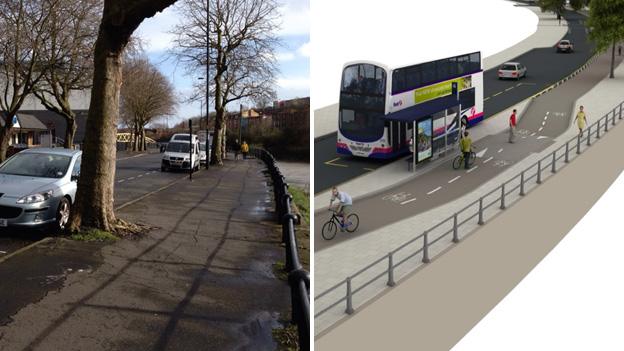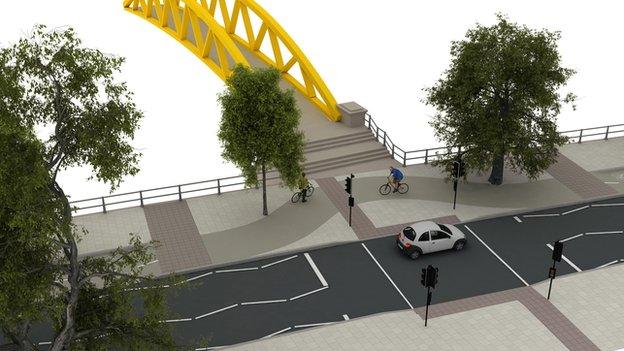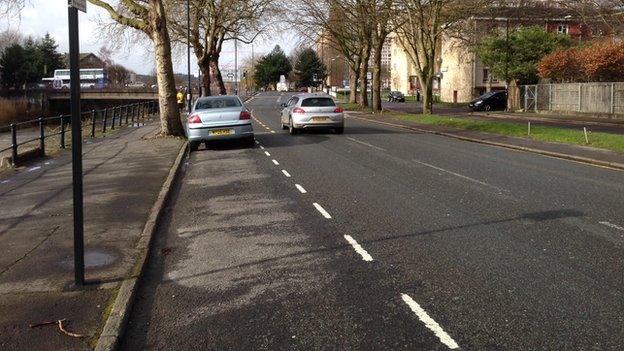Bristol to get first 'Dutch-style' segregated cycle lanes
- Published

The new Dutch style cycle way will form the first part of the new Avon promenade
A new continental-style segregated cycle lane - the first of its kind in Bristol - is to be built.
The £380,000-lane, which is due to open in the summer, will run along the River Avon at Clarence Road in Bedminster.
The road will be narrowed, parking bays removed and a separate 10ft (3 metre) cycle way and footpath constructed.
The 2296ft (700m) lane will be part of a new "promenade" scheme which will link Bristol and Keynsham along the river.

The Clarence Road cycle way will stretch 700m along the River Avon
Bristol mayor George Ferguson, an independent, says the scheme is modelled on similar cycle ways from the Netherlands and Denmark and will be a two-way, segregated track.
He said the lack of space on Bristol's roads was behind the segregated path.
"This scheme is exactly what we are going to see more of in Bristol as cycling and walking routes are improved," he said.
Mr Ferguson called for "wider measures" in the city, such as cycle training and work with employers, to make cycling a "more regular, normal and safer experience".
But Conservative councillor Richard Eddy claimed Bristol City Council had a reputation of "being steadfastly anti-car" and that new cycle lanes in the city were "a political totem".
He said the routes were a "means of reducing road-space" for cars and business users, adding that the council should be supporting those businesses instead of reducing capacity on the roads.
Sgt Sean Underwood of Avon and Somerset Police said the force wanted to see an increase in "respect" between road users.

The cycle way will eventually stretch from Keynsham to Hotwells
"What we are trying to do is stop that divide between motorists and the cyclist," he said.
"Our aim to try and bring them together a bit more so that they respect each other and therefore don't commit offences, because they are thinking about the other party."
- Published26 January 2014
- Published10 September 2013
- Published30 May 2012